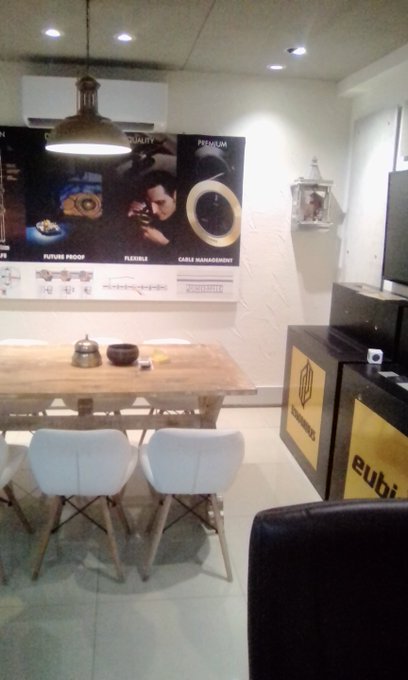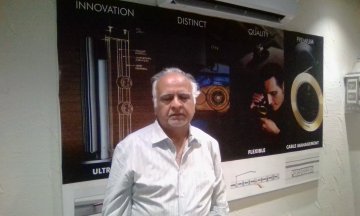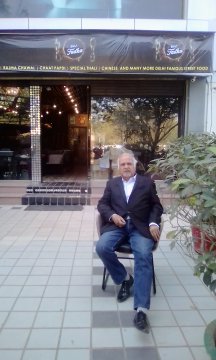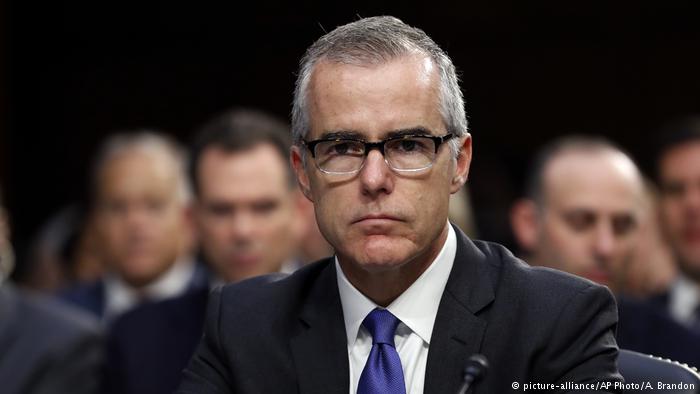RJS Vande Mantram & JaiHind Journalists met
RJS Vande Mantram & JaiHind Journalists met to discuss positivity in journalism.Deliberation began with self introduction of India News Today and the inquisitive young – Interns.

RJS journalists raised lot of questions related to the media°s career,its working , social security welfare of media person and it’s growth in today’s perspective. Uday Manna the Convener of the group explained the necessity of positive journalism and how to inculcate it’s ethic and values so the society gets inspiration to be better human being.Naresh Sagar RJS Sr member of RJS explain the role of media as an umpire,observer has bird view to find solutions with continuous deliberation among intellectual Thinkers for setting right direction for the society to achieve their Solomon goals and bring day to day changes in the society.

Entire deliberation or mini worship started at 2.15 PM lasted UpTo 6.15 PM the India News Today asked to convert the deliberation into the videos for the benefit of media fraternity. Deliberation were shot in questions answer firm as an interview which shall be uploaded as per the schedule of Ajay Pawar who is well versed film direction and took personal interest in making it Video of Chai for baatcheet soon shall be sent to 10K members of ippci ,WJI & RJS.
JaiHind- JaiBharat
‘Our Time Has Come – How India is Making its Place in the World’
CPR is pleased to invite you to a book discussion on
‘Our Time Has Come – How India is Making its Place in the World’
Author: Alyssa Ayres
The discussion will be moderated by Srinath Raghavan, Senior Fellow at CPRMonday, 19 March 2018, 11:00 a.m. to 12:30 p.m.Conference Hall, Centre for Policy Research
‘Our Time Has Come – How India is Making its Place in the World’
Author: Alyssa Ayres
The discussion will be moderated by Srinath Raghavan, Senior Fellow at CPRMonday, 19 March 2018, 11:00 a.m. to 12:30 p.m.Conference Hall, Centre for Policy Research
About the book:
A rising India wants a seat at the table of global powers, and is ready to set its own terms on everything from defense to climate to trade. Ayres considers how a fiercely independent India seeks its place as a leading power, and how the United States should respond.
About the author:
Alyssa Ayres is senior fellow for India, Pakistan, and South Asia at the Council on Foreign Relations (CFR). At CFR her work focuses on India’s role in the world and on U.S. relations with South Asia. In 2015, she served as the project director for the CFR-sponsored Independent Task Force on U.S.-India Relations, and from 2014 to 2016, as the project director for an initiative on the new geopolitics of China, India, and Pakistan. She directs the U.S. Relations with South Asia Roundtable series, blogs regularly for Asia Unbound, and is a contributor to Forbes.com. Her book about India’s rise on the world stage, Our Time Has Come: How India is Making Its Place in the World, was published by Oxford University Press in January 2018.
New Delhi: India
twitter.com/#!/Nksagar
2,752 Following
1,156 Followe
Naresh Kumar Sagar’s Tweets

Naresh Kumar Sagar
@Nksagar
Sagar Media Inc Wishes everyone Happy dawn of Vikram Samvat 2075 Greetings on the auspicious occasions of Ugadi, Gudi Padava and Sajibu Cheiraoba. May this new year bring joy prosperity and happiness to all.


Naresh Kumar Sagar
@Nksagar
Sagar Media Inc: Marcus winds batters Darwin (link: http://Queensland.PM) Queensland.PM Modi 2.4Lakhs Solar pumps to farmers in 3yrs.INC 84 Congress Plenary IG Stadia (link: http://NDelhi.Int) NDelhi.Int&Eco resolution.MMS address.Russian vote Prez election,Putin on way 4 term.China 1stimOath to Constitution


Hillary Clinton slips fracture wrist in India
Hillary Clinton Broke Wrist: Falls Again On India Trip.

The former secretary of state for the United States, Hillary Clinton, could not follow her itinerary in Indian city of Jodhpur as she injured her right hand.
According to reports, Hillary injured her hand after slipping in a bathtub at the palace where she was staying in Rajasthan’s Jodhpur city.
Doctors, who were called to Umaid Bhawan Palace following the mishap, advised the 70-year-old to rest as they diagnosed her with a sprain. Due to this, Hillary had to cancel her plans to visit the Mehrangarh Fort, which she had lined up for the day.
After her visit to the Mehrangarh Fort, Hillary had leave for Salawas village to see weaving of durries (carpets).
However, since the pain did not subside, Hillary decided to get her hand checked at Goyal Hospital in Jodhpur where an X-ray of the wrist showed she had a hairline fracture, according to Times of India.
This was the second time Hillary fell on her tour of India.
Earlier, she was seen stumbling while descending the staircase of Jahaz Mahal, a 13th century harem in Mandu, Madhya Pradesh.
It was unclear whether the fall caused injury in Hillary’s hand as she used her right hand to catch herself on the stairs.
Ex-FBI Dy McCabe ouster
Former FBI deputy director Andrew McCabe, who has endured a year of withering attacks from President Donald Trump, was fired by the Justice Department Friday just days before he was to retire.

McCabe pushed back hard at the decision, saying he was the victim of a “war” by the Trump administration against both the FBI, and the special counsel probing allegations of Russian election meddling.
Announcing McCabe’s ouster, the Justice Department said an internal investigation found that he had made unauthorized disclosures to the media, and had not been fully honest “on multiple occasions” with the department’s inspector general.
“The FBI expects every employee to adhere to the highest standards of honesty, integrity and accountability,” Attorney General Jeff Sessions said in a statement.
The decision was taken “after an extensive and fair investigation,” Sessions said.
German FM:Islam ‘not part’ of country,
German Chancellor Angela Merkel´s hardline new interior minister declared that Islam is not “part of Germany” in an interview published Friday, setting off a political storm two days into her fourth term.

Asked by the top-selling Bild daily whether the influx of Muslim migrants and asylum seekers to Europe´s top economy meant that Islam now belonged to the fabric of the nation, Horst Seehofer replied “no”.
“Islam is not part of Germany. Christianity has shaped Germany including Sunday as a day of rest, church holidays, and rituals such as Easter, Pentecost and Christmas,” he said.
“The Muslims who live among us are naturally part of Germany. But that of course does not mean that we, out of a false sense of deference, should sacrifice our traditions and customs.”
Germany´s Muslim community is estimated to count about 4.5 million members, around 1.8 million of whom are German citizens.
Most are descendants of Turkish so-called “guest workers” invited to Germany in the 1960s and 1970s.
The community grew again with the arrival since 2015 of more than one million asylum seekers from war-torn Muslim-majority countries such as Syria and Afghanistan.
Seehofer´s provocative comments come just two days after Merkel was sworn in for a fourth term with a new right-left “grand coalition” government.
The outspoken Seehofer, leader of the Christian Social Union (CSU), the Bavarian sister party of Merkel´s Christian Democrats, is new to the cabinet.
His expanded interior super-ministry also covers “Heimat” or homeland affairs, intended to recapture claims to patriotism and national identity from the far-right AfD, which won nearly 13 percent of the vote in September´s general election.
Powerful conservative Wolfgang Schaeuble said in 2006 that Islam was part of Germany and Europe as interior minister in Merkel´s first cabinet, provoking little reaction.
Christian Wulff, then president of the country, revived the phrase in 2010, this time touching off a heated national debate, with right-wing conservatives accusing him of denying Germany´s Judeo-Christian roots.
Merkel has come down firmly on the side of inclusion, repeatedly stating that Islam and Muslims belonged in Germany, and vocally defending the stance at the height of the refugee influx.
Seehofer´s comments are likely to prove divisive in the fledgling coalition, which only came together when the reluctant SPD got on board after months of political paralysis.
Juergen Trittin of the opposition Greens sharply criticised Seehofer, saying a stance of exclusion would be “catastrophic” and only benefit the anti-immigration AfD.
Bavaria is holding a state election in October, when the CSU is expected to face a strong challenge from the far-right.
Jacob Zuma is to face corruption charges
Former South African president Jacob Zuma is to face corruption charges over a $2.5 billion arms deal, prosecutors said, as a years-old scandal returned to haunt him within weeks of his fall from power.

It was a stunning judicial development on a continent where political “Big Men” rarely have to face their accusers in court.
Zuma, who was forced to resign by his ruling African National Congress (ANC) last month, was at the centre of a 1990s deal to buy European military kit that has cast a shadow over politics in South Africa for years.
Chief state prosecutor Shaun Abrahams told a media conference on Friday that Zuma’s attempts to head off the charges hanging over him for more than a decade had failed.
The 75-year-old denied all the allegations against him, Abrahams added.
“After consideration of the matter, I am of the view that there are reasonable prospects of successful prosecution of Mr Zuma on the charges listed in the indictment,” Abrahams said.
“I am of the view that a trial court would be the most appropriate forum for these issues to be ventilated and to be decided upon.”
Zuma will face 16 charges relating to 783 instances of alleged wrongdoing, National Prosecuting Authority (NPA) spokesman Luvuyo Mfaku said.
Twelve are of fraud, one of racketeering, two of corruption and one of money laundering.
There was no immediate comment from Zuma and it was not immediately clear when the former leader might go to trial.
Zuma was deputy president at the time of the arms deal. Schabir Shaikh, his former financial adviser, was found guilty and jailed in 2005 for trying to solicit bribes for Zuma from a French arms company.
The 16 counts were filed against Zuma but then dropped by the NPA shortly before he successfully ran for president in 2009.
Since his election nine years ago, his opponents have fought a lengthy legal battle to have the charges reinstated. Zuma countered with his own legal challenges.
The ANC said it had confidence in the country’s criminal justice system and the independence of the judiciary.